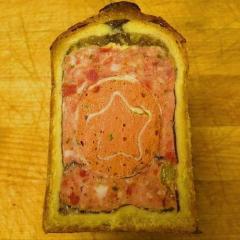-
Welcome to the eG Forums, a service of the eGullet Society for Culinary Arts & Letters. The Society is a 501(c)3 not-for-profit organization dedicated to the advancement of the culinary arts. These advertising-free forums are provided free of charge through donations from Society members. Anyone may read the forums, but to post you must create a free account.
What/Who is a "Foodie"?
-
Similar Content
-
- 1,147 replies
- 155,428 views
-
- 1,055 replies
- 160,772 views
-
- 21 replies
- 1,202 views
-
- 21 replies
- 768 views
-
- 335 replies
- 69,082 views
-
-
Recently Browsing 0 members
- No registered users viewing this page.







Recommended Posts